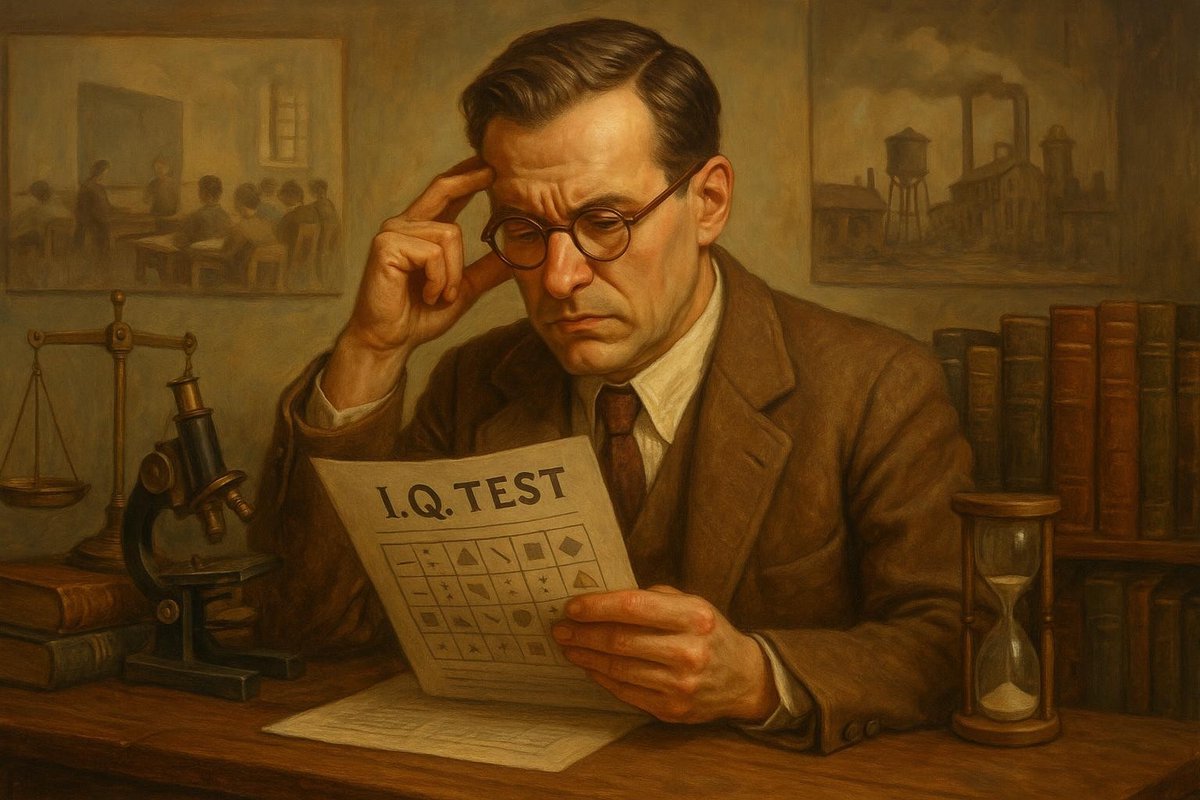
Unpacking the Question: Are IQ Tests Flawed?
What if the intelligence we measure is merely a reflection of an outdated scientific system? IQ tests, often seen as the golden standard for measuring intelligence, seem simple at first glance. However, their history and implications are anything but straightforward. As time goes on, many people question whether these tests truly capture the depth and complexity of human intelligence.
Before IQ testing, intelligence was a nebulous concept. The quest for a measurable and objective metric led to the advent of IQ tests in the early 20th century. But what was missing in this pursuit was an understanding of the multidimensional nature of intelligence.
– Early psychologists like Alfred Binet aimed to identify students in need of educational support, not to define intelligence itself.
– The tests were later adopted and adapted in ways that often reflected societal biases.
Interestingly, the cultural and historical context of the early 1900s played a significant role in shaping these tests. During this time, the desire to categorize and quantify human ability was at its peak, influenced by the eugenics movement and the industrial revolution’s focus on efficiency.
Surprising Facts: The Unseen Layers of IQ Testing
Did you know that IQ tests have been used to justify some of the more contentious social policies of the past century? From immigration quotas to educational tracking, the implications of these scores stretch far beyond the classroom.
Consider, for instance, how a single number could influence a person’s life trajectory. The ripple effect of these tests is both fascinating and troubling. But how do these scores hold up under scrutiny?
- Reality: IQ tests measure specific cognitive abilities, but not all aspects of intelligence.
- Misconception: IQ scores are definitive markers of one’s potential and value in society.
Many believe that a high IQ equates to higher intelligence, but the reality is that it merely quantifies certain cognitive processes, like pattern recognition and problem solving. Critics argue that the tests often fail to account for creative and emotional intelligences.
Albert Einstein himself once said, “Imagination is more important than knowledge.” This highlights a crucial oversight of traditional IQ tests, which typically emphasize quantifiable knowledge over imaginative capabilities.
What Science Says: Challenging the Status Quo
Scientific inquiry into intelligence has evolved dramatically since the first IQ tests were developed. Today, we know that intelligence is a multifaceted construct influenced by a myriad of factors, from genetics to environment. But what does this say about the reliability of IQ tests?
- Step: Consider variables such as socio-economic status and cultural background.
- Step: Explore alternative theories like Howard Gardner’s Multiple Intelligences.
IQ tests often fall short of capturing the full spectrum of human capability. The scientific community is increasingly aware of these limitations and has begun exploring new frameworks for understanding intelligence.
Howard Gardner’s theory of Multiple Intelligences proposes that intelligence is not a single entity but a collection of distinct yet interconnected abilities. This perspective challenges the traditional view and encourages a broader approach to evaluating human potential.
Some researchers argue that the focus on IQ detracts from other valuable skills, sparking debates about how we assess and value intelligence. This ongoing discourse is vital for developing more equitable and comprehensive methods of evaluation.
What It Means for Us: Beyond the Numbers
So, what does this mean for society at large? For one, it prompts us to rethink how we define success and intelligence. The implications of relying on a single test are profound, impacting educational opportunities, employment prospects, and even self-esteem.
Consider the educational system, which often prioritizes test scores over holistic development. This mindset can lead to a narrow focus that overlooks students’ unique strengths and talents.
- Analogy: Imagine a toolbox filled only with hammers, ignoring the potential of other tools.
- Anecdote: A student excels in music yet struggles with traditional tests, highlighting a gap in the system.
As we move forward, it’s crucial to adopt a more inclusive understanding of intelligence. This involves recognizing and nurturing diverse talents and abilities, paving the way for a society that values all forms of genius.
The legacy of IQ testing teaches us about the fallibility of scientific systems and the need for continuous reflection and adaptation. By questioning long-held assumptions, we can create a more equitable and informed society.
Fuel Someone Else’s Curiosity
This exploration into the legacy of IQ testing invites us to question and learn. Share this article with friends or join the conversation online. Together, we can delve deeper and foster a more nuanced understanding of intelligence. Let’s keep the curiosity alive!

Leave a Reply